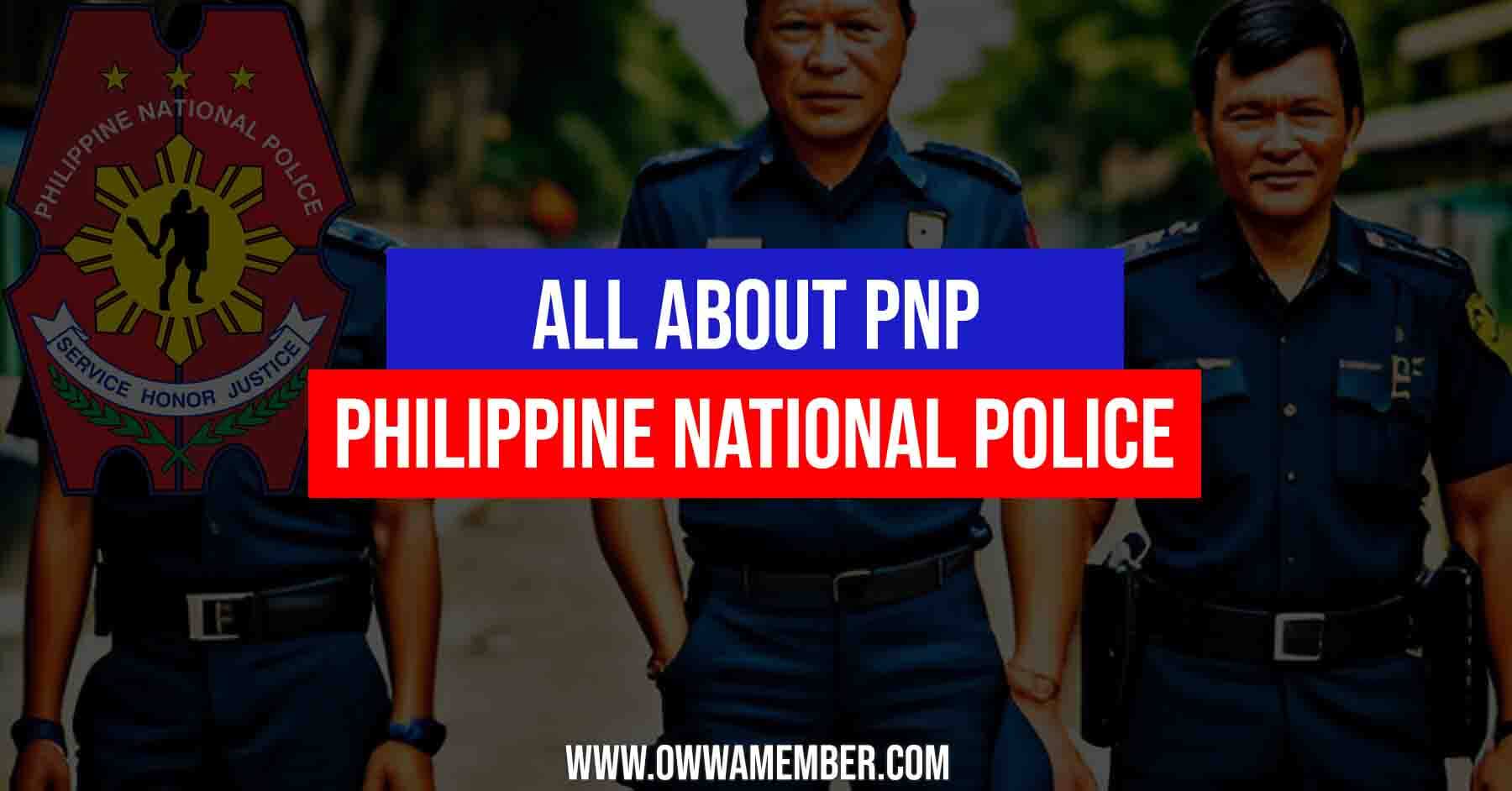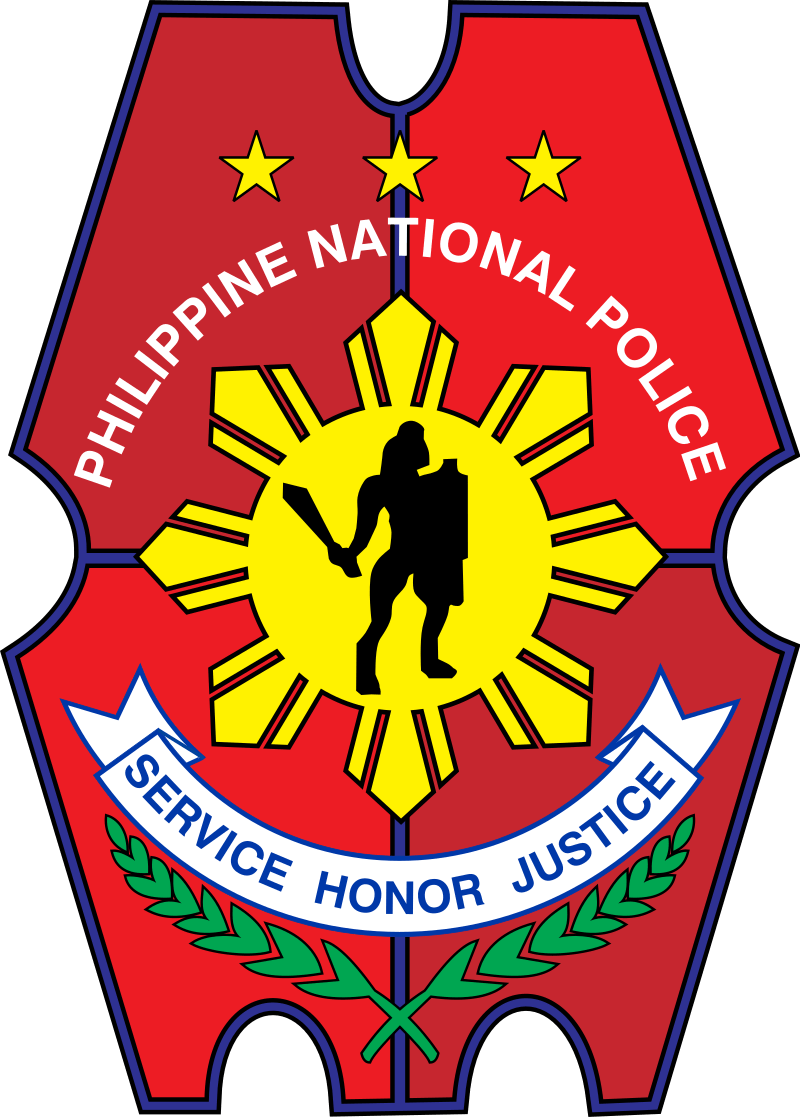The Philippine Constabulary, often known as the PC, was founded on August 8, 1901, making it the first island-based police organization under American rule. It later evolved into the Philippine National Police (PNP).
The Philippine Constabulary Integrated National Police, sometimes known as the PC/INP, was established as the nation’s primary police force on August 8, 1975, by Presidential Decree No. 765. The Philippine Constabulary served as the core of a national police force that combined these disparate and fragmented local police groups.
Contents
- What is PNP?
- PNP Seal & Badge
- Operational units
- Anti-Cybercrime Group (ACG)
- Anti-Kidnapping Group (AKG)
- Aviation Security Group (AVSEGROUP)
- Civil Security Group (CSG)
- Drug Enforcement Group (DEG)
- The Criminal Investigation and Detection Group (CIDG)
- The Highway Patrol Group (HPG)
- Integrity Monitoring and Enforcement Group (IMEG)
- Intelligence Group (IG)
- Forensic Group (FG)
- Maritime Group (MG)
- Police Security and Protection Group (PSPG)
- Special Action Force (SAF)
- PNP Air Unit (AU)
- Programs
- Video: PNP Recruitment Procedure
- Frequently Asked Question
- Summary

What is PNP?
It is the national police force of the Philippines. Insofar as it administers all law enforcement functions across the Philippines, it serves as both a national and a local police force.
Camp Crame, in the National Capital Region’s Quezon City, serves as the organization’s national headquarters.
PNP Seal & Badge
The following are the badges of PNP and its meaning:
- Lapu-Lapu – Leadership, courage, nationalism, self-reliance and community defense
- Laurel – 14 Regional Commands, honor, dignity and the privilege
- PNP Shield – Protection of all citizens
- Sun – Flowering, maturing and ultimate realization of the glorious evolution of the PC/INP into a National Police Organization
- Eight Sun Rays – Eight (8) provinces
- Three Stars – Luzon, Visayas and Mindanao
- Philippine Monkey Eating Eagle the National Bird – Swiftness and ferocity, power, courage and immortality
- Service, Honor, Justice – Efficiency, integrity, cohesiveness, camaraderie and equanimity
Operational units
The PNP is made up of the following operating units:
Anti-Cybercrime Group (ACG)
It is in charge of conducting forensic examinations on confiscated computers and digital data, conducting cybercrime investigations, and identifying weaknesses in both public and private IT infrastructure.
Anti-Kidnapping Group (AKG)
It is in charge of handling hostage crises as well as the nation’s kidnapping problem.
Aviation Security Group (AVSEGROUP)
It is in charge of protecting civil aviation from threats at Philippine airports.
Civil Security Group (CSG)
It is in charge of overseeing the regulation of all professionally trained watchmen, security firms, and corporation guard groups. Additionally, it oversees the licensing and registration of explosives and guns.
Drug Enforcement Group (DEG)
In support of the Philippine Drug Enforcement Agency, it is in charge of the prevention and control of illegal drug use. Before that, it was known as the PNP Anti-Illegal Drugs Group.
The Criminal Investigation and Detection Group (CIDG)
It is in charge of keeping track of, looking into, and prosecuting any crimes involving economic sabotage and other crimes of a size and scope that would suggest they were committed by powerful or skilled criminal organizations and syndicates. It also manages all significant cases involving infractions of the penal code or other assigned legislation as well as organized crime management.
The Highway Patrol Group (HPG)
It is a part of the LTFRB #I-ACT! and is charged with enforcing traffic regulations, regulating motor vehicle registration, and helping the Land Transportation Office.
Integrity Monitoring and Enforcement Group (IMEG)
It is in charge of gathering intelligence and carrying out law enforcement actions against PNP employees who are involved in any illegal activities, including trafficking in illegal drugs, human beings, financial crimes, cybercrime, malversation, graft, corrupt practices, security violations, and others. This group took over for the Counter-Intelligence Task Force (CITF).
Intelligence Group (IG)
It is in charge of both intelligence gathering and counterintelligence.
Forensic Group (FG)
It is in charge of conducting various forensic services and scientific inquiries. It contains the Scene of the Crime Operations (SOCO) branch and was formerly known as the Crime Laboratory (CL).
Maritime Group (MG)
It is in charge of carrying out all police duties over Philippine territorial seas, lakes, and rivers as well as along coastal areas, including ports, harbors, and small islands.
Police Security and Protection Group (PSPG)
It is in charge of safeguarding important government facilities, as well as protecting approved private individuals and dignitaries visiting from outside. Also, it helps in the protection of the president and his family the Presidential Security Group.
Special Action Force (SAF)
It is a mobile strike force or reaction unit to support regional, provincial, municipal, and city police forces for hostage-taking rescue operations, civil disturbance control, internal security operations, search and rescue during natural calamities, disasters, and national emergencies, as well as other specialized police operations like anti-hijacking, anti-terrorism, and explosives and ordnance disposal.
PNP Air Unit (AU)
It is a highly specialized police division with a focus on giving the entire PNP air assistance. It is staffed by a group of qualified, experienced, and professional pilots and mechanics. Formerly been part of the Special Action Force

Programs
Patrolman/Patrolwoman
As the PNP Recruitment Program progresses, a large window of opportunity opens for people who want to join the police force and contribute significantly to the security and general welfare of their country.
This recruitment effort extends an invitation to become a community protector rather than just a job. You can actively contribute to the peace and safety of your country by joining the police force.
Qualifications
The following individuals are qualified for PNP RSS:
- Patrolman – College graduates who qualify or people with musical talent for a marching band
- Patrolwoman –Those with Latin honors and eligibility, as well as those with musical talent for marching band
The following are the requirements established through Republic Act (RA) No. 6975, as amended by RA 8551:
- A Philippine national
- A person with moral integrity
- Must have passed the PNP’s drug, medical, and psychological exams
- Must hold a legitimate bachelor’s degree from an accredited university
- Eligible from any of the list below:
- PNP Entrance (NAPOLCOM)
- PD No. 907 (Honor Graduates)
- Civil Service Eligibility Professional Level
- RA No. 1080 (Bar and Board Examinations)
- RA 6506 (Criminologist)
- Must not have been dishonorably removed from military employment or fired for reason from any government-affiliated civilian position
- Must not have been found guilty in a final judgment of a crime or infraction involving moral turpitude
- Must stand at least 1.57 meters in height for men and 1.52 meters for women
- Must not be heavier or lighter than 5 kilos than the usual weight for one’s height, age, and sex
- Must be at least twenty-one (21) years old but not more than thirty (30) years old
Anti-Cybercrime and cybersecurity
It is an intelligent, strategic, and logical reaction to any safety concerns brought on by these constantly changing dangers.
Directorate for Investigation and Detective Management (DIDM)
It oversees the performance of all investigation units, communicates pertinent investigative policies, and eventually unifies procedures to ensure that the Philippine National Police (PNP) investigation service is carrying out its assigned duties.
Philippine National Police Academy (PNPA)
Graduates of this public safety school are employed as officers with the Philippine National Police (PNP), Philippine Public Safety College (PPSC), Bureau of Jail Management and Penology (BJMP), and Bureau of Fire Protection (BFP). The purpose of PNPA, which was founded on August 26, 1977, by Section 19, PD 1184, was to educate Filipinos to the tertiary level so they may work as officers in the Department of the Interior and Local Government’s three bureaus.
Video: PNP Recruitment Procedure
The recruiting procedure for new police officers, specifically for the positions of Patrolman and Patrolwoman, has been launched by the Philippine National Police Recruiting and Selection Service (PNP RSS). Watch the video posted on YouTube by “PULIS AT MAMAMAYAN” to learn more about the PNP Recruitment process.
https://www.youtube.com/watch?v=9f8gsIr-BwA
Frequently Asked Question
If you have any further questions regarding “Philippine National Police (PNP)”, see the list of frequently asked questions and answers below.
1. What is the PNP?
The Philippine National Police (PNP), the country’s civilian national police force, was formed by the merger of the Philippine Constabulary and the Integrated National Police.
2. What is the purpose of PNP?
The purpose of PNP is to adhere to the law, prevent and control crime, uphold peace and order, and guarantee internal and public security with the active participation of the community.
3.Where can I apply for PNP?
PNP released their application on Facebook and their website, so keep an eye out to find out when the application process will start.
4. What is the PNP’s hotline number?
You can reach PNP’s main office at +63908-103-5958 / 8537-4500 local 6071.
5. What is PNP’s main office address?
PNP’s address is at the NHQ Building, Camp BGen Rafael T Crame, Quezon City, Philippines.
6. What is PNP’s email address?
PNP’s email address is pnp.pio@gmail.com.
Summary
At all times, the PNP must adhere to the Constitution and put the loyalty of the country, its citizens, and its organization before that of any individual.
Every year, there is a recruitment process to join a PNP. This is a chance to spread principles, be a part of something greater, and leave a lasting impression on the community you serve.